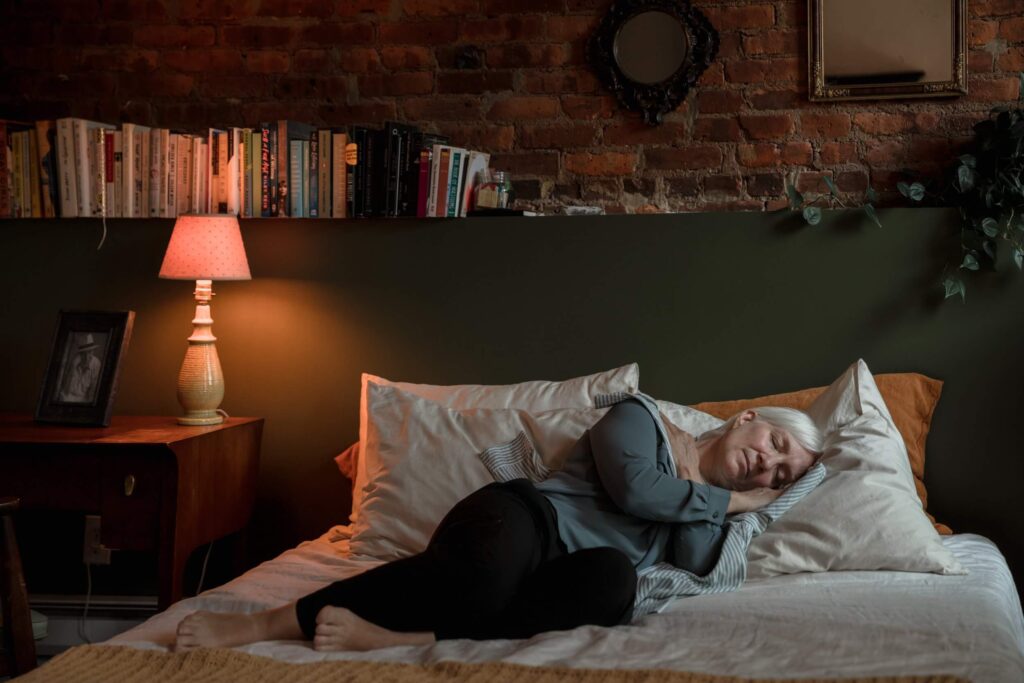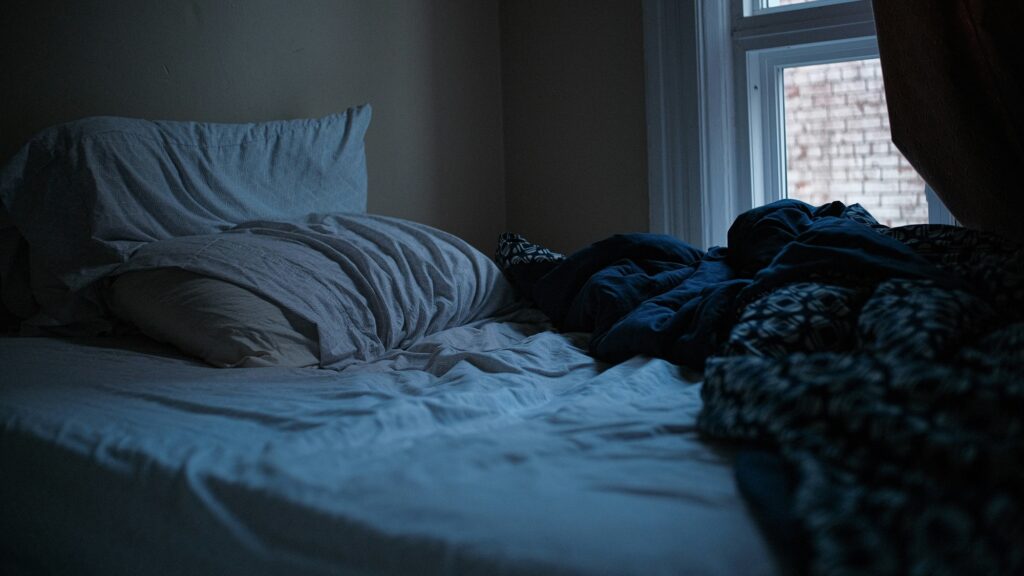Since the last two and a half years—and still counting—the global outbreak of the catastrophic Coronavirus pandemic and the many subsequent lockdowns have drastically accelerated the mental health crisis among the human population.
With uncertainty, personal struggles, recurrently gloomy news cycles and the very real threat of the virus, more and more people began to experience stress, anxiety and an overall feeling of being constantly overwhelmed.
In the face of such adversity, even a modicum of resilience—or the ability to adapt to or deal with trauma, tension or a challenging situation—can go a long way in enabling an individual to cope with the everyday.

Highlights
- An adequate amount of sleep every night is indispensable for the human body to regenerate, and yet most of us do not end up getting enough interrupted sleep, thereby hampering one’s resilience,
- An individual’s response to adversity depends upon how they perceive or view the world and engage with it, the kind of social resources at their disposal and the coping strategies they veer towards when faced with hardship,
- One’s sleep cycle is hampered not only as a result of daily stressors but also in the case of trauma that might have accrued over a period of time.
While being resilient cannot make one’s problems fade away, it does give one the ability to see past them, and cope better. Resilience is not always about being stoic in the face of adversity; it is something that can, over time, be cultivated and practised.
It is a well-known fact that an adequate amount of sleep every night is indispensable to the human body in order to regenerate both physically as well as mentally, and yet, most of us do not realise that we don’t get sufficient uninterrupted sleep. In effect, a good night’s sleep is a key factor in building resilience, and too much stress ends up hampering one’s sleep. Let us explore further how sleep and resilience are closely linked.
Sleep and resilience—what’s the connection?
According to the American Psychological Association, the term ‘resilience’ can be defined as “the process and outcome of successfully adapting to difficult or challenging life experiences, especially through mental, emotional and behavioural flexibility and adjustment to external and internal demands.”
Adequate sleep each night is essential not only for one’s physical resilience against disease or infection but also to build resilience in order to deal with the goings-on of every day, to be able to process information and maintain an equilibrium between reacting impulsively and conscious decision-making. While we sleep, the brain processes the day’s happenings, forming memories as well as rejecting any unnecessary information that might clutter the mind.
Sleep also aids ‘neuroplasticity,’ or the brain’s ability to “adapt to input,” according to an article by Ana Sandoiu published in Medical News Today. Neuroplasticity helps the brain “to ‘pick up’ new skills, change and adapt to its environment stimuli, and ultimately learn new things.” In the case of lack of sleep, the brain will struggle to process new information as well as recall existing information—processes that are equally essential to both building and maintaining resilience.
In his book Why We Sleep: The New Science of Sleep and Dreams (2018), neuroscientist and sleep expert Matthew Walker states that sleep has an impact on resilience in two ways:
- Quality sleep helps the brain process information and hence plays an important role within the realms of memory and learning as well as retaining new information.
- Sleep also aids emotional regulation, i.e. the quality and amount of sleep influence the way an individual responds to certain situations. For instance, a sleep-deprived person is likely to react more impulsively, lose their cool at the slightest of matters, or might have extreme mood swings.
Most of us struggle to get the recommended quota of sleep of seven to eight hours every night. Sleep is not a luxury but a necessity. When viewed in the context of the ability to build resilience, adequate sleep is extremely important. Lack of sleep can result in a snowballing effect on an individual’s health and circadian rhythm. It makes them feel tired and low on energy (which, in turn, hinders motivation and concentration), increases stress hormones, creates a sharp spike in blood glucose levels, increases blood pressure and reduces immunity.
Inadequate or erratic sleep also poses a comparatively greater risk of developing Alzheimer’s disease, stroke, heart-related ailments and diabetes in the long run. When we prioritise sleep, we can also practise mindfulness in our every day activities by simply being more alert and in tune with the moment.

One’s sleep cycle is hampered not only as a result of daily stressors but also in the case of trauma that might have accrued over a period of time, irrespective of the magnitude of the trauma experienced. Individuals who have been in the throes of combat, have faced domestic abuse, have emerged from a severe illness or are grappling with the aftermath of having survived a natural disaster are more likely to face trauma-related sleep difficulties such as insomnia, parasomnia, recurring nightmares, somnambulism and a disturbed REM (Rapid Eye Movement) sleep behaviour disorder. Poor sleep can lead to a deterioration in mental and physical health, cumulatively affecting one’s resilience.
Sleep, therefore, is an essential means to build resilience and performance, and can be improved by establishing a consistent bedtime routine. This can be achieved over a period of time by ensuring to avoid bright, harsh lights before sleeping since melatonin—a chemical in the brain that helps promote sleep—is activated by darkness. To get an optimum amount of sleep, one should refrain from consuming alcohol or caffeine before falling asleep, as it might interfere with the REM stage when the brain is at its most restorative phase of sleep.
Furthermore, nowadays, many fitness-tracking devices are available with a built-in tracker for sleep, monitoring the time spent by an individual in each stage of sleep, along with monitoring their heart rate as well. Hence, using a fitness tracker whilst going to bed can help one gauge the quality and quantity of their sleep, subsequently allowing them to set better sleep goals.
What is the importance of resilience?
Research suggests that physiologically, there are certain neurotransmitters at play due to which a person experiences an increase in their level of resilience and the ability to let go. Various factors are responsible for determining how well an individual adapts to difficult situations. An individual’s response to adversity depends upon how they perceive or view the world and engage with it, the kind of social resources at the individual’s disposal and the coping strategies they veer towards when faced with hardship.
While being mentally strong enables an individual to avoid or circumvent certain difficult situations, being resilient helps them recover and bounce back from the same. Here are some reasons why resilience is important:
- Better learning skills, improved memory and the ability to retain information
- A greater capacity to cope with stressful circumstances
- An increased level of fitness and immunity
- Reduced risk-taking behaviour or unhealthy coping mechanisms such as eating disorders and substance abuse, and being able to handle emotions and impulses effectively, particularly under pressure
- Enhanced social skills, self-esteem and empathy, along with the ability to maintain healthy relationships and avoid conflict
- Lesser chance of developing a negativity bias, i.e. the proclivity to focus solely on the negative aspects of a situation
What are the ways to build resilience?
While fixing a disturbed or erratic sleep cycle is one of the foremost ways to gradually build resilience, some other ways are as follows:
- Finding a sense of purpose: Engaging in activities that lend a sense of meaning and accomplishment, no matter how small, helps set achievable goals, giving a person something to look forward to.
- Building meaningful relationships: Building positive, meaningful and long-lasting relationships among friends and family—people you can confide in—provides an individual with support, acceptance and guidance, along with a sense of solidarity, a strong social network and, eventually, a feeling of gratitude too.
- Learning from past experiences: The coping strategies and skills used to deal with or overcome difficult situations in the past can prove to be useful in identifying behaviour patterns and ways of reacting, especially in the case of potentially volatile scenarios.
- Letting go of what is not in one’s control: Holding on to certain elements that do not bode well for an individual or are unhealthy and toxic should be let go of in order to build resilience. The ability to let go translates into adapting a new train of thought, setting realistic goals and being more accepting of what is in our control.
- Working prudently towards solutions: In the case of a crisis, it would seem impractical to simply wait for the problem to disappear. Instead, one should work towards possible ways to resolve it, by understanding what is in their control. Even though there may not be an immediate solution, the steps taken to attempt to work towards it rather than being discouraged are perhaps half the battle won.
- Cognitive restructuring: The process of cognitive restructuring entails replacing potentially damaging or detrimental habits with constructive or developmental ones, thus enabling to let go of harmful patterns that encumber resilience.
- Taking care of yourself: It is important to address one’s own needs and feelings to identify triggers that might lead to extreme behaviour in the face of imminent stress. Including some form of physical activity in your daily routine, getting enough sleep every night, eating balanced, timely meals and practising meditation and mindfulness boosts your overall health and ability to be more resilient.
- Seeking professional help: While building resilience is a process that takes time and practice, one can always reach out to a mental health professional if one doesn’t see any considerable progress.
Conclusion
Getting enough sleep and building resilience both involve an equal amount of effort and practice along with time. A vital part of developing resilience is to get enough sleep that will help make you mentally and emotionally strong. Falling into a regular sleep routine is key, and so is being mindful and cognizant of one’s actions that impart the ability to adapt to challenging situations.
Disclaimer: The contents of this article are for general information and educational purposes only. It neither provides any medical advice nor intends to substitute professional medical opinion on the treatment, diagnosis, prevention or alleviation of any disease, disorder or disability. Always consult with your doctor or qualified healthcare professional about your health condition and/or concerns and before undertaking a new health care regimen including making any dietary or lifestyle changes.







